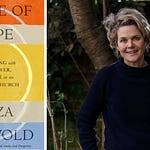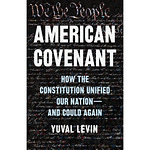Hello friends,
As promised, my conversation with Shannon Harris is on the podcast this week. We talk about her new book The Woman they Wanted: Shattering the Illusion of the Good Christian Wife
I have a particular interest in this book because it's a behind the scenes look at the culture of the church I grew up in: Covenant Life Church in Gaithersburg, Maryland. There is national relevance for Shannon's story, however, because she was married to Joshua Harris, author of I Kissed Dating Goodbye, for 21 years. Josh's book was a national best-seller and shaped the romantic and sexual lives of countless evangelical Christians. Josh and Shannon divorced in 2019, which was big enough news at the time to be written up by CNN.
I asked Shannon:
who she wrote the book for
how she thinks about the idea that some will not listen to anything she says because she doesn't believe everything they do
the ways in which the church we both spent years in taught us to distrust our intuition and our gut
One of my favorite lines in the book is this one:
Having my life fall apart publicly has shown me the worst that can happen, and do you know what it is? People criticize you. That is about it. And when they are finished criticizing you they go to Home Depot and buy a new grill because they are on sale.
Shannon's a good writer. There are a number of passages where there's a whiplash of a joke at the end, like this, that might make you laugh out loud. The book is also gutsy, and a tad provocative, which is why I think it seems to be selling quite well based mostly on word of mouth. I also think Shannon deals with delicate stories involving other people — especially the leaders from our church — with a deft and tasteful touch.
If you read last week's note, you know that I spent a lot of time puzzling over an intuition I had, ironically I guess, that there was something I was missing about this point about listening more to our intuition. I think the New Yorker piece I linked to last week is a great perspective on listening to our bodies, our guts, in a balanced way.
But there was something else. And by the time I'd finished writing last week's note, I think i figured it out. I sensed an inherent contradiction in applying a belief in our intuition too broadly.
It took me a while, but I realized that it could be viewed as inconsistent if I eagerly agree with a statement from Shannon — or Russell Moore — that we should trust our gut, but then I turn around and tell someone who thinks the 2020 election was stolen that they need to stop relying on their feelings and live in a fact-based world.
So what's the difference?
I think Shannon's emphasis on listening to our bodies is specifically situated in a context in which she was told to ignore her intuition all together. Insular, controlling cultures often gaslight people into disbelieving their instincts. I lived it. That absolutely should be criticized and corrected.
But what if someone says, after the 2020 election, that he believes the election was stolen, and adds, "Who cares what I can prove in the courts? ... This happened." When asked about the legal cases being filed to address the supposed election fraud, this person says, “I am thrilled to be too ignorant of the details to answer that question in any substantive way.” This person is so certain of voter fraud, despite the lack of evidence, that he says, "We need to fight to the death, to the last drop of blood, because it’s worth it."
Do the rest of us have to listen to his intuition? Obviously not. (All those things were said, by the way, by right-wing talk radio personality Eric Metaxas).
I've spent years trying to fight the cancer of relativism that holds all truths to be equal, regardless of the evidence for them. That way lies societal chaos. As I wrote in the summer of 2020:
If anyone can be smeared in the public square — on social media or elsewhere — simply on the basis of circumstantial evidence or even claims that don’t have a shred of evidence behind them, then you, or people you love, or figures you support who are doing important work in the world can be attacked with nothing but lies, and there won’t be much you can do about it.
At the same time, in the realm of relationships and personal decisions, running over someone's gut instincts is a time tested tool for control and abuse. So I think this issue of our intuition is most helpful as a clue, or a warning signal, that should launch us into further investigation of why we have that instinct. It is a starting point for inquiry, not a closing argument.
Yascha Mounk’s new book
I am reading a new book by Yascha Mounk, founder of Persuasion, called The Identity Trap.
It’s a history of the left’s journey to today, where what some might call “identity politics” is the north star for many progressives. I’ll have more on that when I talk to Yascha for an upcoming podcast episode.
But there have been a few points where I’ve seen connections in Mounk’s book to other strands of thought.
For one, one critique he has of what he calls “the identity synthesis” is that it elevates subjective experience too high above objective reality. That’s what I’m trying to avoid in looking for balance as we talk about trusting our gut.
And second, I’m seeing a parallel between the left wing and the religious evangelicalism in which I was raised, in this respect. Mounk recounts how over the past decade “the distinction between different advocacy groups” such as the ACLU, the Sierra Club, and others, “has become increasingly fluid, and the ideological price of admission to all of them increasingly steep” (105).
In other words, to be accepted by many on the left now, you must profess adherence to a growing list of orthodoxies held as absolute by those on the inside. If you do not sign up for all the dogma, then you are not one of them, and nothing you say carries much weight.
That’s true, also, of the religious fundamentalists who will not listen to a word Shannon Harris says because she doesn’t hold their strict theological views.
One smart friend, however, argues that politically, the right is building a broader tent with more room for heterodoxy. I don’t know if I agree. But I do find that the left’s political culture has become rather narrow, often humorless, and scolding.
The Catchup: 5 top news stories of the week
Something new I’m doing for Yahoo News. Read more on the whole of them here. The idea is that if you missed a bunch of stuff, or just want to dip your toe in political news once a week, you can read this and get caught up pretty quick.
Impeachment
Romney retires
Musk is everywhere
Iranian hostage swap
DACA ruling
Receiving votes: CIA 'looking into' allegations connected to COVID-19 origins via ABC News
What I'm listening to:
Everything by Blake Mills
Mitski's new album
Time to Melt by Sam Evian
Hiss Golden Messenger
Interesting Reads
Jan. 6 shattered her family. Now they’re trying to forgive by Dan Rosenzweig-Ziff for The Washington Post
Where Is the Evidence, Speaker McCarthy? by David French for The New York Times
President Biden should not run again in 2024 by David Ignatius for The Washington Post
Farewell to Mitt Romney and the right as we knew it by Nick Catoggio for The Dispatch
First Of Potentially Many Google Antitrust Claims Goes To Trial by Mike Masnick for TechDirt
“Put it all in a poem. Everything they’re trying to destroy.”
That’s it for this week. Have a great weekend!















Share this post